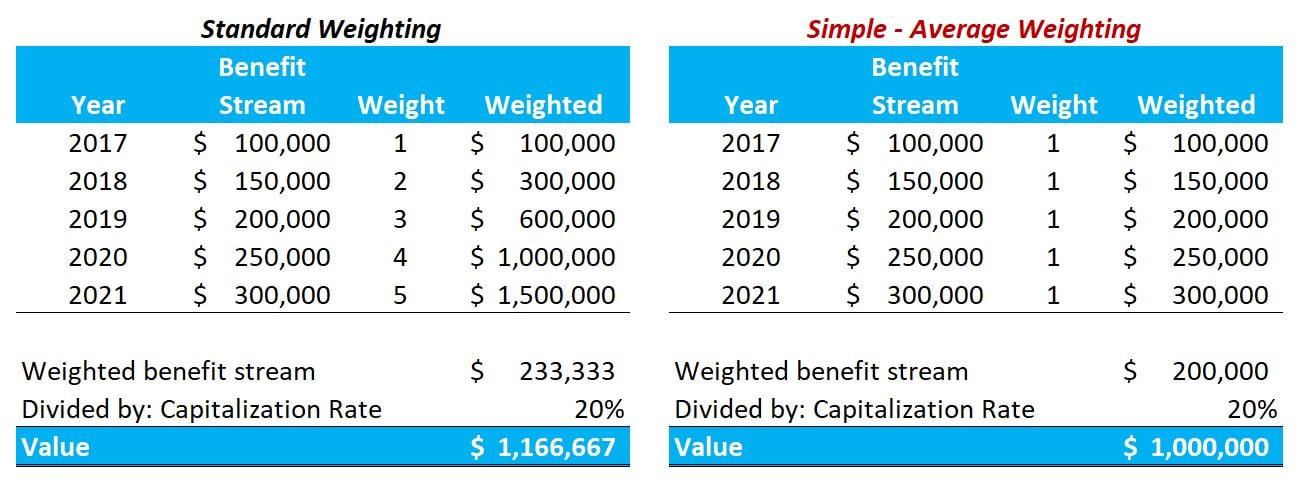There are many instances when a business valuation report is needed in litigation. During a divorce, if one or both spouses own a business, it may be necessary for the business to be valued for asset distribution purposes. Each party may hire their own business valuation analyst to value the business, and each analyst may come back with very different conclusions as to the value of the business. While differences in value can often be the result of two analysts having justifiable differences of opinion, there sometimes can be something else going on.
While most credentialed valuation analysts have high ethical standards, there are some unscrupulous “experts” who will purposefully “rig” their valuation report in order to achieve a desired result in favor of their client. So, how can you spot one of these “rigged” valuation reports?
One area to look at when trying to spot a rigged valuation report is the income approach used by the analyst. There are two big value drivers when examining the income approach: cash flows and the capitalization/discount rate.
Cash Flows
One way to rig a valuation report is to manipulate the cash flows of the subject company. An analyst may adjust the company’s reported net income for a variety of legitimate reasons. These might include adjustments for normalized compensation, discretionary expenses or non-operating income/expenses. Significant adjustments to the reported net income should be examined closely to make sure that the cash flows used in the income analysis is appropriate.
If the analyst is capitalizing cash flows, another area to consider is their weighting of historical cash flows. Did they weight all years analyzed equally or give more weight to some years? By using a specific weighting, the analyst could either increase or decrease the cash flows of the subject company. In the example shown below, the use of simple average weighting would result in estimated cash flows of $200,000, but the use of a weighted average would result in estimated cash flows of $233,333. Using a capitalization rate of 20%, the difference in value is $166,667.

Capitalization/Discount Rate
Once an analyst has determined the cash flows of the subject company, the next step would be to determine the capitalization rate or discount rate, which is expressed as a percentage. A capitalization rate is used to convert anticipated economic benefits of a single period into value. A discount rate is used to convert a series of monetary sums into present value. Subtracting a company’s expected long-term growth rate from the discount rate yields the capitalization rate.
When looking at historical cash flows, the benefit stream determined is divided by the capitalization rate to estimate the company’s value under the income approach. The lower the discount rate, the higher the value of the subject company. As shown below, if we assume cash flows of $200,000, the differences in the capitalization rate will result in significantly different values. A change in the capitalization rate of 5% yields a change in value of $333,333.

Valuation Approaches
Another sign that you may be looking at a rigged valuation report is an over- or under-reliance on a single approach. There are three valuation approaches: asset approach, income approach and market approach.
A valuation analyst should determine the appropriateness of each approach. Sometimes an analyst may use only one approach. Sometimes they may use two or even all three approaches. The key question to ask is: Did they use all the relevant approaches for the subject company?
For example, if the analyst did not use an income approach, why? The income approach is one of the most common approaches used when valuing privately-held businesses. Did the subject company value under the income approach not meet their goals, and therefore they removed it? Did they use the market approach in their analysis? If so, does it support a much higher or lower value?
Reputable valuation analysts frequently come up with different company values. This could be the result of differences in information availability, different access to management or differences in assumptions and judgments. Most reputable analysts take their job seriously and understand that their report and their testimony will be used by the trier of fact in their ruling. Unfortunately, there are some analysts who treat their assignments as a “hired gun.” These analysts may attempt to rig their valuation report to gain favor with a spouse or the spouse’s attorney.
Understanding some of the potential items to look for — and knowing what to look for when hiring a business valuation expert — can help protect you and your client and avoid a rigged valuation report.
Need Help?
Contact us here or call 800.899.4623 for help.


